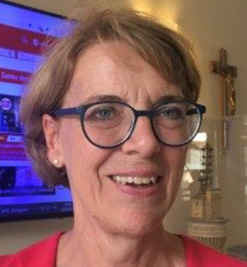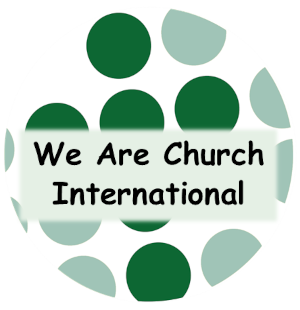Dear Cardinal Mario Grech,
We welcome and embrace ‘Synodality’ as a way of ‘being Church’ that is at once both ancient and new in our tradition. We support the three key themes of the Synodal Process: Communion, Participation and Mission.
We understand that it is “how” we relate to one another in the Church, our capacity to ‘be together’ in harmony and unity (i.e. Communion), that will help us fulfil our various responsibilities and roles (i.e. Participation) and by doing so empower us as “Church” to bear witness to the love of God in the world and to the unity of all humankind in God (i.e Mission).
We are a network of Catholics who treasure our faith tradition and love the Church because, as our name states; we are all the Church. We wish to contribute constructively to its renewal and reform and have good relations with all. It is because we care so deeply about the Church and its mission that we have felt compelled over the years to speak up and question the injustice of structures, practices and teachings that have blocked, rather than channelled, God’s grace in the world. Combined with a lack of accountability and a culture of secrecy, these unjust structures, practices and teachings have contributed (among other egregious wrongs) to the clerical abuse of children and vulnerable adults, and the institutionalised discrimination of half the world’s population, women.
Since the Second Vatican Council, it is understood that all the baptised regardless of the different ministries and responsibilities they hold, share a foundational equality by virtue of their common baptism.
Contrary to popular perception, the Church (in theory at least) is neither a democracy nor a dictatorship but an ordered community where power and authority are exercised as Christian service and not power over anyone, in accord with the Gospel message.
Vatican II has been crucial in reshaping our understanding of “Church” and highlighting the co-responsibility of the laity, along with the hierarchy, in working for its renewal and reform. By highlighting the baptismal dignity and equality of every baptised person, the Council has helped us to more fully appreciate that the Holy Spirit works and speaks through each lay woman and man in the Church, as much as it does through each member of the male hierarchy.
The significance of this insight is that the sensus fidelium (i.e the sense of faith in all the faithful) is now regarded to be as vital a part of the teaching authority of the church (i.e the magisterium) as that of the hierarchy. Pope Francis is the first Pope to promote the sensus fidelium in the Church and his global Synodal Process explicitly gives expression to it.
It is regrettable however that this shift in the internal dynamics of the Church’s magisterium has not been communicated better or explained clearly to the majority of Catholics. Many remain unaware that the teaching authority of the Church is no longer the exclusive preserve of the hierarchy. They do not know that the bishops and the Pope are obliged to engage in meaningful consultation with all the People of God before making key decisions.
Significantly, the change does not diminish the role of discernment assigned to the bishops by the Council, but it does oblige them to anchor their discernment in an authentic and faithful listening to the People of God.
And this is where we have a problem.
It is one thing to be told “We are all the Church together” and another to experience the reality of such declarations. The most glaring example of this incoherence is the way women are treated. While we acknowledge the inclusion of 54 Women amongst 70 non-bishops voting at the Synod, we must also express deep disappointment and concern at the lack of progress so far.
Although the ordination of women priests was mentioned in many countries, it was not included on the agenda for the Global Synod in Rome and most reports on the female diaconate have never been published.
This is simply not good enough. It is not in the spirit of synodality to ignore the concerns of women who make up half of the world’s population. We call on the bishops to renew their commitment to the Synodal Process; to authentically listen (i.e. listen from the heart) to their sisters in the Church, to relinquish all attachments to power and privilege and to stop clinging to an out-dated model of church.
The Church can not be a credible or effective sign of God’s love and justice in the world as long as its own structures and processes lack transparency and discriminate against half the membership of the baptised faithful (i.e. women, half the population of the world).
Instead of criticising society to change and act differently, it is time for the Church (i.e the whole church, the ordained and the laity) to become the change it proclaims about God’s peace and justice in the world and to lead by example in the way it organises itself at every level.
We Are Church International calls for the following steps representing concrete signs of synodality to be endorsed by the Synod in October 2024:
1. Shared decision making with equal numbers of laity and clerics at all Synods, Assemblies and Councils.
2. Opening all Ministries to women and to married persons, regardless of their sexual orientation.
3. Appointment of bishops to be overseen by committees of lay and clerics.
4. Unity in Diversity allowing countries to deal with their respective important concerns such as the ones mentioned in 1. - 3. above in accordance with their culture and the legitimate concerns of the believers in these countries
5. Draw up a Church Constitution setting out the rights and responsibilities of all the people of God and a new governance structure. WICR have prepared a very good draft:
Colm Holmes, Chair We are Church International
Email: This email address is being protected from spambots. You need JavaScript enabled to view it. Phone: +353 86606 3636
Dr Martha Heizer, Vice-Chair We are Church International
Email: This email address is being protected from spambots. You need JavaScript enabled to view it. Phone: +43 650 4168500




 We Are Church International welcome the fact that the Vatican, in its declaration Dignitas Infinita, recalls the fundamental and absolute dignity of all human beings, which is threatened and violated in many ways in our world today.
We Are Church International welcome the fact that the Vatican, in its declaration Dignitas Infinita, recalls the fundamental and absolute dignity of all human beings, which is threatened and violated in many ways in our world today.

